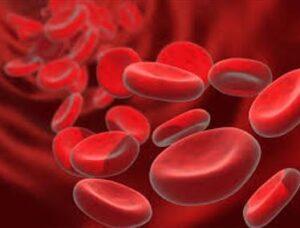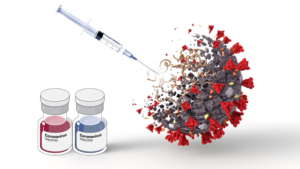The human body is made up of different organs and glands. The thyroid gland is one of them, that is a small organ presented in the front of the neck, wrapped around the windpipe. The glands throughout the body produce substances(hormones) that help the body to perform specific functions. When the thyroid gland does not work properly, it might have an impact on the entire body. There are different conditions resulting from the improper working of the thyroid gland. They are hypothyroidism, hyperthyroidism., goiter, thyroid cancer, and more. When the body creates more thyroid hormones, called thyroxine, a condition of hyperthyroidism is developed. And, when the body creates little thyroid hormone, it develops a situation of hypothyroidism.
What does the Thyroid gland do?
The thyroid gland is located in the front of the neck. Generally, it produces thyroxine, which controls the metabolism of the human body. Metabolism is the process where there is a transformation of food inside the body to energy. And, this energy is necessary for the entire body to work systematically. It is responsible for the formation of energy molecules in the body. Without energy, the body has no motivation to work. Therefore, the thyroid gland is a necessary part of the body to survive.
Thyroid Disease
A medical condition where the thyroid does not produce the right amount of hormones is known to be thyroid disease. The thyroid gland helps to moderate the production of thyroid hormones, thus responsible for the proper functioning of the body.
Thyroid Disorders

The thyroid gland creates the hormones that regulate the proper functioning of the body. Generally, it controls the metabolism of the body. And, this energy is necessary for the entire body to work systematically. There may be several disorders of the thyroid:
Hyperthyroidism
The excessive production of thyroid hormone constitutes a condition known as hyperthyroidism.
Generally, it leads to an increased amount of metabolism in the body. The signs or symptoms of hyperthyroidism include fast heart rate, nervousness, fatigue, weight loss, lack of concentration, tremor, and excess sweating. Moreover, the common causes of hyperthyroidism are Graves disease, excess consumption of iodine, thyroid nodules overexpressing thyroid hormone, and multinodular goiter.
Hypothyroidism
The condition hypothyroidism develops when the thyroid gland produces an insufficient or little amount of thyroid hormone in the body. The problem with the thyroid gland, pituitary gland, or hypothalamus may lead to such problems. The common symptoms of hypothyroidism include dry skin, constipation, feeling cold, mentally foggy, joint and muscle pains, fatigue, and depression. In women, it might also lead to excessive bleeding during menstruation. Some causes of hypothyroidism include thyroid hormone resistance, an autoimmune condition that causes inflammation of the thyroid gland, and acute and postpartum thyroiditis.
Goiter
Goiter is the noncancerous enlargement of the thyroid gland. Generally, it is a result of iodine deficiency in the diet. Goiter can affect any person at any age, especially in areas with a lack of supply of iodine-rich food. A minor goiter does not show any symptoms, but it shows signs when it becomes severe. These signs may be swelling in the neck, coughing, breathing problems, and hoarseness of voice.
Thyroid Nodules
The lumps or abnormal masses within the thyroid gland are the thyroid nodules. The iron deficiency or Hashimoto’s hypothyroid iditis can cause thyroid nodules. These can be solid, or even fluid forms. The nodules do not cause any problem until they are severe. However, it can cause swelling, breathing problems, and pain, when it grows.
Thyroid Cancer
Thyroid cancer is a kind of cancer that grows in the thyroid gland. It is more common in women. It may include signs such as coughing, swelling and pain in the neck, difficulty in breathing and swallowing, and a hard lump in the front of the neck.
Diagnosis of Thyroid Disease
The thyroid gland holds an important service in the body. Diagnosing the diseases or disorders in the thyroid gland is necessary. Sometimes, it may be difficult to diagnose it due to similar symptoms with other conditions. However, certain tests help to determine the symptoms that are caused by thyroid disease. These tests are:
- Blood Test- Thyroid blood test helps to figure out if your thyroid gland is working properly or not. It measures if the thyroid gland is producing the right amount of hormones in the blood. This test is used to diagnose thyroid disorders. Some specific blood tests or ways to diagnose are Thyroid-stimulating hormones, thyroxine, free thyroxine, triiodothyronine, and free triiodothyronine.
- Imaging Tests- Your healthcare provider might do an imaging test known as a thyroid scan. This scan allows us to have a look at the size, shape, and growth of the thyroid gland. It might also be known as ultrasound. It diagnoses the gland through the inside.
- Physical Exam- This is a very simple and painless test to diagnose thyroid disease. The healthcare provider simply feels the growth or enlargement of the thyroid by feeling the neck.
Conclusion
The thyroid gland plays an important part in the body. It controls the metabolism of the body, thus responsible for the proper functioning of the body. Though, there are some disorders of the thyroid, as they may produce excess or lack of thyroid hormones. Therefore, diagnose and treat them on time.




